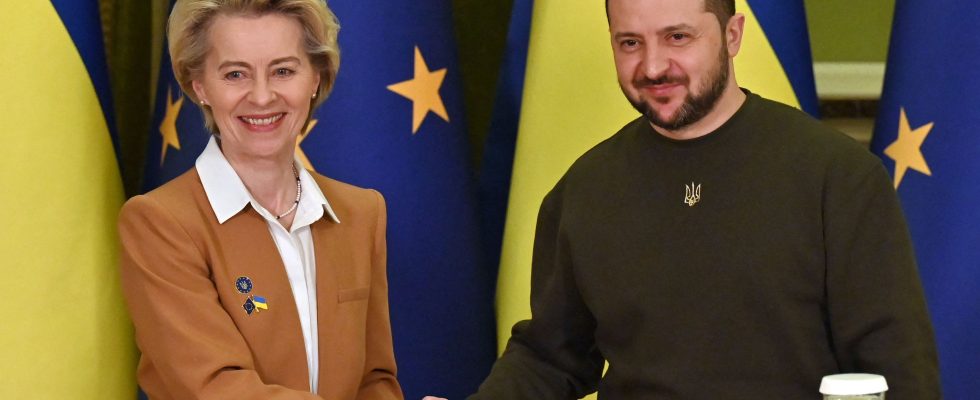Ukraine is now European, and Vladimir Putin has definitely lost it. He not only missed the main official objective by which he justified invading an independent country: “denazifying” it, in order to put an end to an imaginary “genocide” against the pro-Russian populations of Donbass – including his late friend Yevgeny Prigozhin. , ex-leader of the Wagner militias, had himself admitted that it did not exist. All in his rage at not keeping this former Soviet republic in the Great Russian fold, the tsar also missed his two unofficial objectives: to prevent both the rapprochement of Ukraine with the European Union and a fantasmatic “encirclement of NATO.” His strategy resulted in the opposite.
Whatever the outcome of the war on the ground and the negotiations that follow, Ukraine is disgusted with Russia for good. She is more than ever rebellious to this “bridge vocation” that former French President Nicolas Sarkozy, in a recent interview with Figaro, gave itself the right to assign him as a spokesperson for the Kremlin’s demands. It wants to fully belong to the Western camp, which provides it with massive support in the war and has been strengthened by welcoming Sweden and Finland into NATO, suddenly in a hurry to renounce their neutrality. It wants to fully join the European Union, which is more united than it has ever been, provides it with financial, military or human aid (already 61.7 billion euros, including 20 billion in military aid) and granted it the status of candidate country for membership in June 2022.
Complex EU membership
This is where the puzzle begins. What to do with Ukraine in the EU? Morally and politically, the question is misplaced: the Ukrainians are shedding their blood in our place, and their resistance benefits our common strategic security. They are on the front line of the European continent, facing a Russia which sees itself as an empire with disregard for international borders. Technically, membership is more complex than anyone would like. Not the least of these is Article 42-7 of the Treaty of the European Union, which specifies that Member States “must provide aid and assistance [au pays agressé] by all means in their power”. It is thus more restrictive than Article 5 of NATO, which mentions “action deemed necessary” to come to the assistance of an attacked member of the alliance. Membership of a country at war and partially occupied is as delicate for the EU as it is for NATO, which American President Joe Biden rejects for fear of a spiral of war.
In the longer term, Ukraine’s entry into the EU has multiple consequences, both for the capacity of the Ukrainian economy to adapt to the constraints of the single market and for the capacity of the European Union to confront its expansion to the East. How to include a country which would be the largest in the Union by its size without collapsing the entire system, without provoking the rejection of opinions and without submitting new treaties to national referendums, opening doors to protest responses unrelated to the question asked? How can we grant aid to Ukrainian agriculture without collapsing aid from other countries such as France, Germany, Italy or the countries of Central Europe? Poland, although in solidarity with Ukraine, blocked the exceptional measures which were granted to Ukrainian agricultural products, hostages of the Russian blockade. Ukraine’s accession could lead to an explosion of the common agricultural policy (CAP), one of the pillars of European power, its environmental and food security. It requires unanimous agreement from the 27 member states, and Viktor Orban, Prime Minister of Hungary, is not the only one who wants to veto it.
“Make the impossible possible”
Ukraine’s inclusion in the EU is as necessary as it remains hypothetical. Europeans are looking for solutions in all directions. France and the Netherlands are calling for partial opening to the single market, excluding agricultural products. During her visit to Kiev in May, Commission President Ursula von der Leyen admitted that “some might think that it is impossible, improbable or too far away to talk about a free and peaceful Ukraine within the ‘European Union’, adding: ‘Europe is about making the impossible possible.’
* By Marion Van Renterghem is a senior reporter, winner of the Albert-London prize and biographer of Angela Merkel
